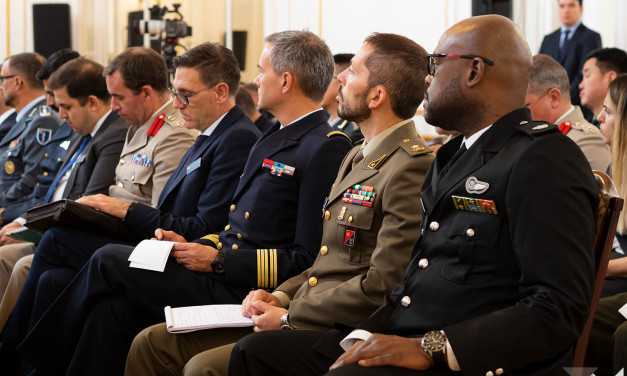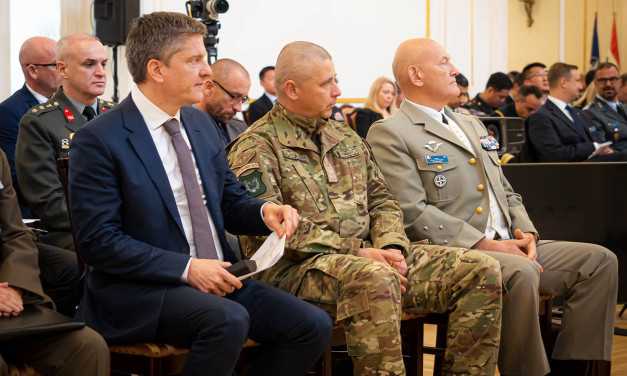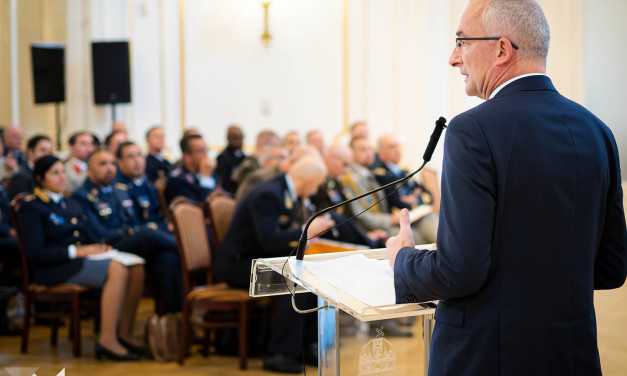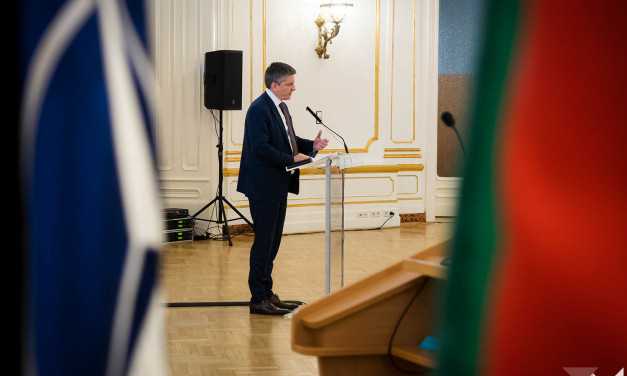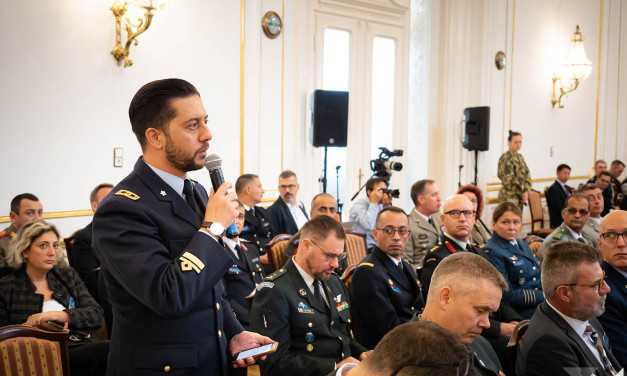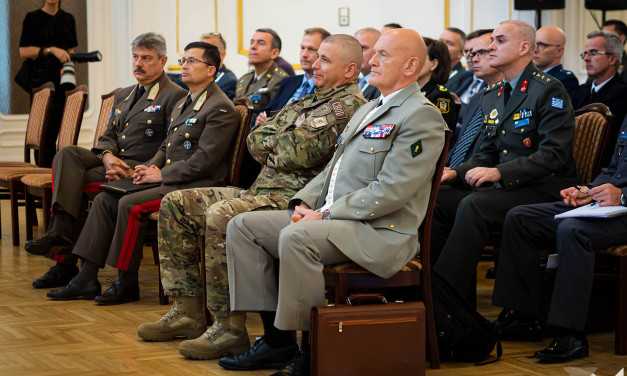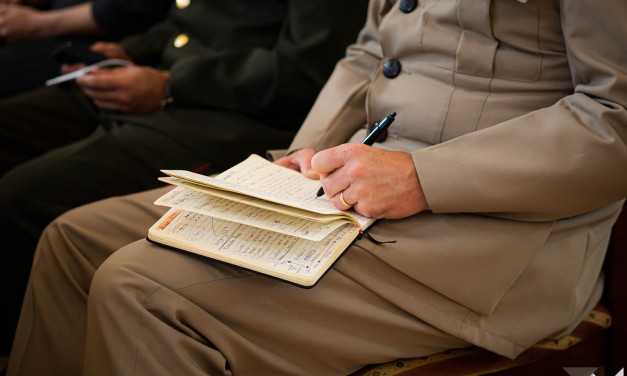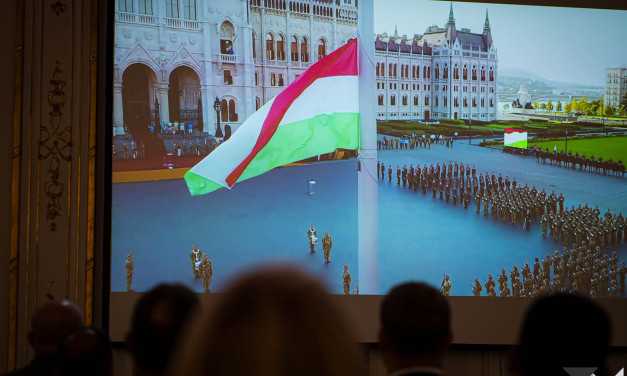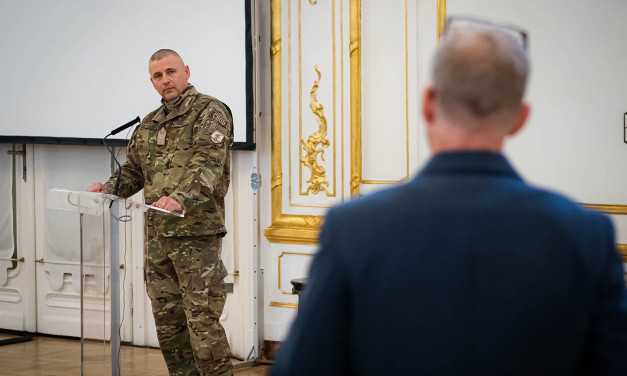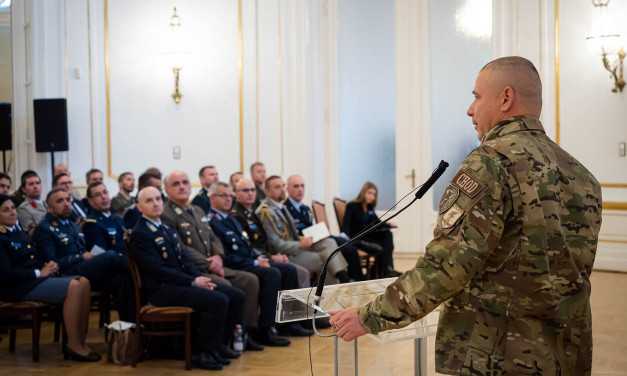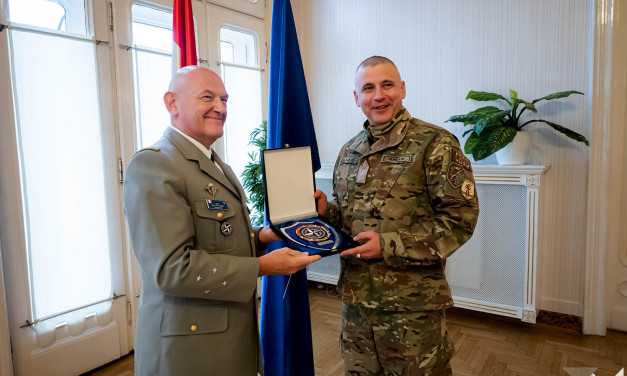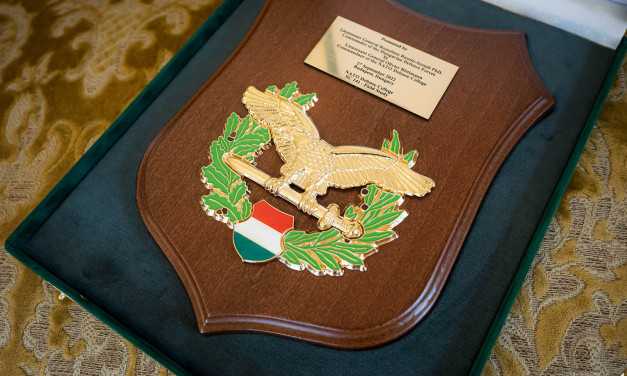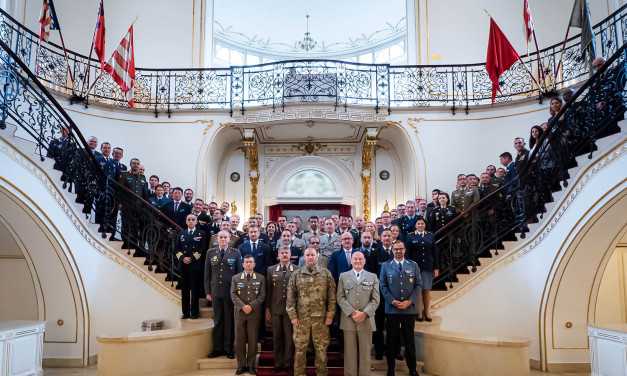Unified defence, a multitude of aspects
Text: Balázs Trautmann | Photo: Sztaniszláv Horváth | 07:45 September 29, 2022As part of a field study, Senior Course 141 of the NATO Defence College recently paid a visit to Budapest. The Course Members of NATO’s senior-level education were introduced to Hungary’s position on foreign and defence policy and received information about the Hungarian Defence Forces. Among others, the event was attended by Dr. Gáspár Maróth, MoD State Secretary for Defence Policy and Development and Lieutenant General Romulusz Ruszin-Szendi PhD, Commander, Hungarian Defence Forces.
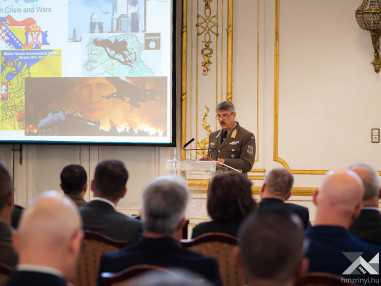
At the event held in Stefánia Palace – Military Cultural Centre, Major General László Garas, Deputy Chief of Staff Operations (J3) of the Hungarian Defence Forces Command welcomed the Course Members on behalf of the host. In his speech, he emphasized that not only the military alliance but also Hungary has encountered serious challenges. One such challenge is the war raging on our eastern borders, and another is the migration pressure from the south. He underlined that decision-makers must plan for decades ahead in order to work out viable strategies, which is a very difficult task in today’s fast-paced world.
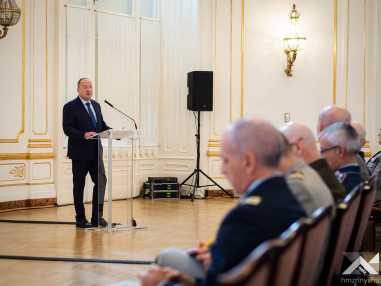
Chairman of the Foreign Affairs Committee of the National Assembly, Zsolt Németh presented, from a Hungarian perspective, the global geopolitical situation and Hungary’s responses to the challenges emerging from it. As he pointed out, the history of Hungary has a fundamental influence on our strategic thinking and our concept of security. In his opinion, NATO’s new Strategic Concept endorsed in Madrid outlines a new world order that is radically different from the one described in the previous document adopted at the Lisbon Summit back in 2010. He thinks that since 24 February, the world order has proven not to be multipolar but bipolar, in which one pole is represented by Western democracies and their allies and partners, whereas the other by China. Zsolt Németh said that he considers it highly important to develop and strengthen an independent European defence industry, and highlighted the role of the NATO Innovation Fund launched in the summer of 2022.
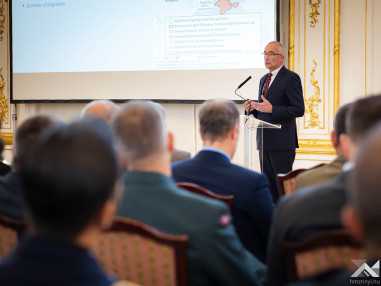
In his presentation, Dr. Péter Sztáray, State Secretary for Security Policy and Energy Security at the Ministry of Foreign Affairs and Trade, emphasized that Europe has been facing a new security policy era since 24 February. We could also say that the so far familiar security policy architecture has crumbled, and there are as yet no signs of how a new one would be built. The issue of how our relationship with Russia would conclude is also questionable, just like that of how the dysfunctions of the UN could be overcome. The state secretary underlined that in his opinion, we must expect a protracted conflict in the case of Ukraine, which cannot be solved with military force. Speaking about Hungary’s energy policy, he highlighted the role of historical inheritances in the aspect of Hungarian energy security, among them the energy infrastructure constructed to connect with the former Soviet Union. He also noted that the successful construction of increasingly more interconnections with Western and Eastern Europe independently of the above-mentioned infrastructure is an important achievement.
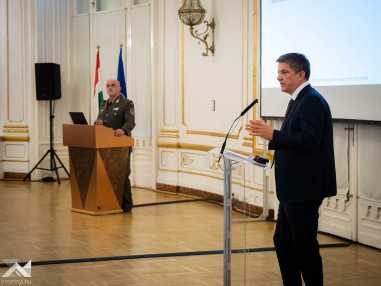
Dr. Gáspár Maróth, MoD State Secretary for Defence Policy and Development talked about the recently adopted National Security Strategy and National Military Strategy, highlighting that these documents lay the foundation for Hungary’s responses to the challenges emerging from a rapidly changing security policy environment. Among their key elements are the rapid and thoroughgoing modernization, the fast tracking of changes and the ability to adapt to them. As he said, the first and foremost point of Hungary’s strategy is to ensure the industrial and financial sustainability of the country, the basis of independence. Besides strengthening bilateral relations, we also consider it important to continue cooperation on the regional, European and Atlantic levels. By way of example, the state secretary highlighted, among others, the Visegrád Four as well as the Székesfehérvár-based Headquarters Multinational Division Centre (HQ MND-C).
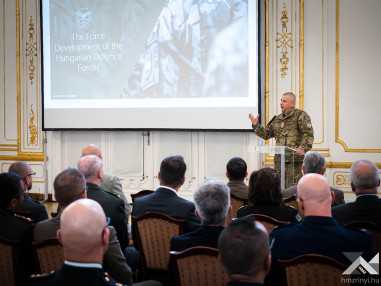
“The question is how we can increase the manpower of combat units”, pointed out in his presentation Lieutenant General Romulusz Ruszin-Szendi PhD, Commander, Hungarian Defence Forces. As he said, the task of providing properly trained and equipped troops who are deployable beyond the national borders is a serious one, not only for Hungary but also for several other NATO member countries. The HDF are working to reduce the number of soldiers in administrative positions and increase that of soldiers in executive personnel positions. The lieutenant general noted that there are very few countries which are able to be present in all five domains of warfare (air, land, sea, cyber and space) with adequate-size forces. Being a small country, the basis of Hungary’s security is constituted by its active role in NATO. The lieutenant general presented, among others, the results of the National Defence and Armed Forces Development Program, the procured military equipment, and highlighted the role and importance of the Military Cadet Program in providing personnel. He added that the most important goal is to “reintegrate” soldiers into society, as in everyday life, civilian citizens have rarely met uniformed servicemen on the street since the abolishment of conscription.
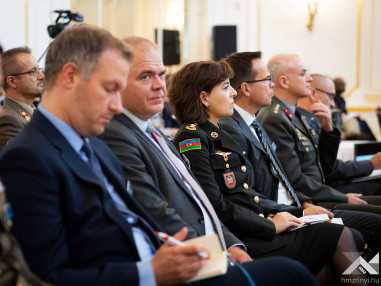
A Hungarian Course Member, Colonel Szabolcs Tamás Gáspár considers it important to bring our country, into focus so that all participants of the course can learn about Hungary’s strategic thinking and its position on security policy. Emphasizing the importance of dialogue, the colonel highlighted that the Course Members, by relying on their own experience and knowledge, can raise their questions directly to the lecturers representing the country. Moreover, they can “bring home” the result of networking done during the course, and also have opportunity to get acquainted with the perspectives of other allied countries.
Galéria

